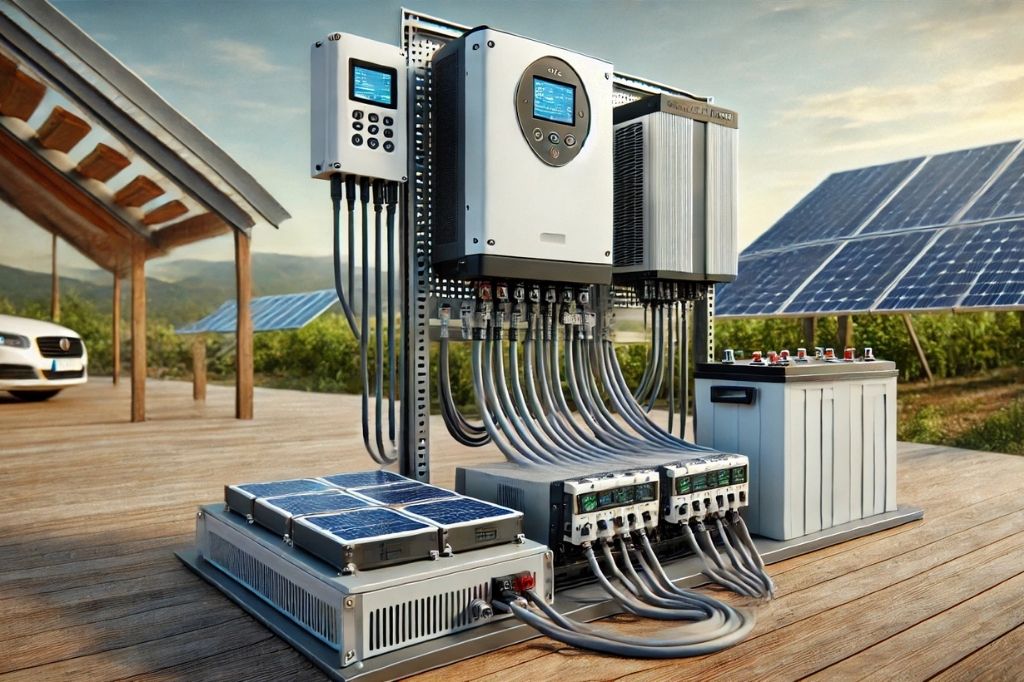Switching to a solar energy system is both an environmentally friendly step and a long-term solution for your budget. But the most confusing part of the job is this: “How do you calculate how many solar panels and batteries do I need?” In fact, there is nothing to be afraid of, because it is much simpler to understand this than you think! Have a cup of coffee and let’s discuss this topic in detail in a conversational mood.
Recognize Your Energy Needs
Imagine, your house is like an organism, and energy is its source of life. So, how much do you need this resource? You can start by taking a look at your electricity bills. It says something like “kWh” on there, remember? Here it shows your total energy consumption.
If you spend 900 kWh per month, this means about 30 kWh of energy per day. But there is one point that you should pay attention to here: the devices you use and seasonal changes. The energy you spend running the air conditioner in summer may be different from the energy you use for heating in winter. Even the light that you sometimes forgetfully leave on can affect this equation!
Understanding your energy needs is critical for the correct planning of your solar panels and batteries. You can think like “how much energy, how much panel“. But there is no need to panic, because I will give you the formula for this in a moment.
Solar Panels: Energy Heroes on the Roof
Solar panels are almost the superheroes of your home! They take sunlight in the daytime and turn it into electricity. But our question is: “How many solar panels do I need?” Let’s figure this out together, too.

If you need 30 kWh of energy per day and a solar panel produces 5 kWh per day, we can say with a quick math that you need at least 6 panels. But there is one detail here: the weather. A rainy or cloudy day can affect the performance of your panels. Leaving an extra margin of safety at this point will not give you a headache in the long run.
There is also the issue of the roof. Is your roof big enough? If you have a small roof, you should choose panels with higher efficiency. Yes, it may cost a little more, but in the end it’s best to optimize your roof space.
Batteries: The Stars That Light Up the Night
And what happens when the sun goes down? This is where the batteries come in. You need batteries to use solar energy at night. But how many? And what kind?
Let’s say you want a 12-hour energy backup. If your daily requirement is 30 kWh, you will need a battery system with a capacity of 15 kWh to store half of it. But if you want more, you may need to increase the battery capacity.
When choosing a battery, “Is it lithium-ion or lead-acid?” you will face the question. Lithium-ion batteries are more expensive, but they have a long service life. Lead-acid batteries may be a more economical option, but they require frequent maintenance. It is important to choose a good battery to get a comfortable sleep during the night!
Other Equipment: Inverter and Charge Controllers
A solar energy system does not consist only of panels and batteries. Inverters are the heroes of your system in the background. They make the energy from solar panels available at home. The inverter capacity must be appropriate for the total power of your system. So if you are installing a 5 kW system, you should choose an inverter with the same capacity.

Charge controllers, on the other hand, regulate the energy coming into your batteries. It prevents overloading and extends the life of your batteries. These small but critical parts ensure that your system works in a healthy way.
Living With The Sun
Installing a solar energy system is not only an investment, but also a step towards a sustainable lifestyle. “How do you calculate how many solar panels and batteries do I need?” the question is the first and most important step of this process. But with the right calculations and a little planning, you can make an energetic investment in your future.